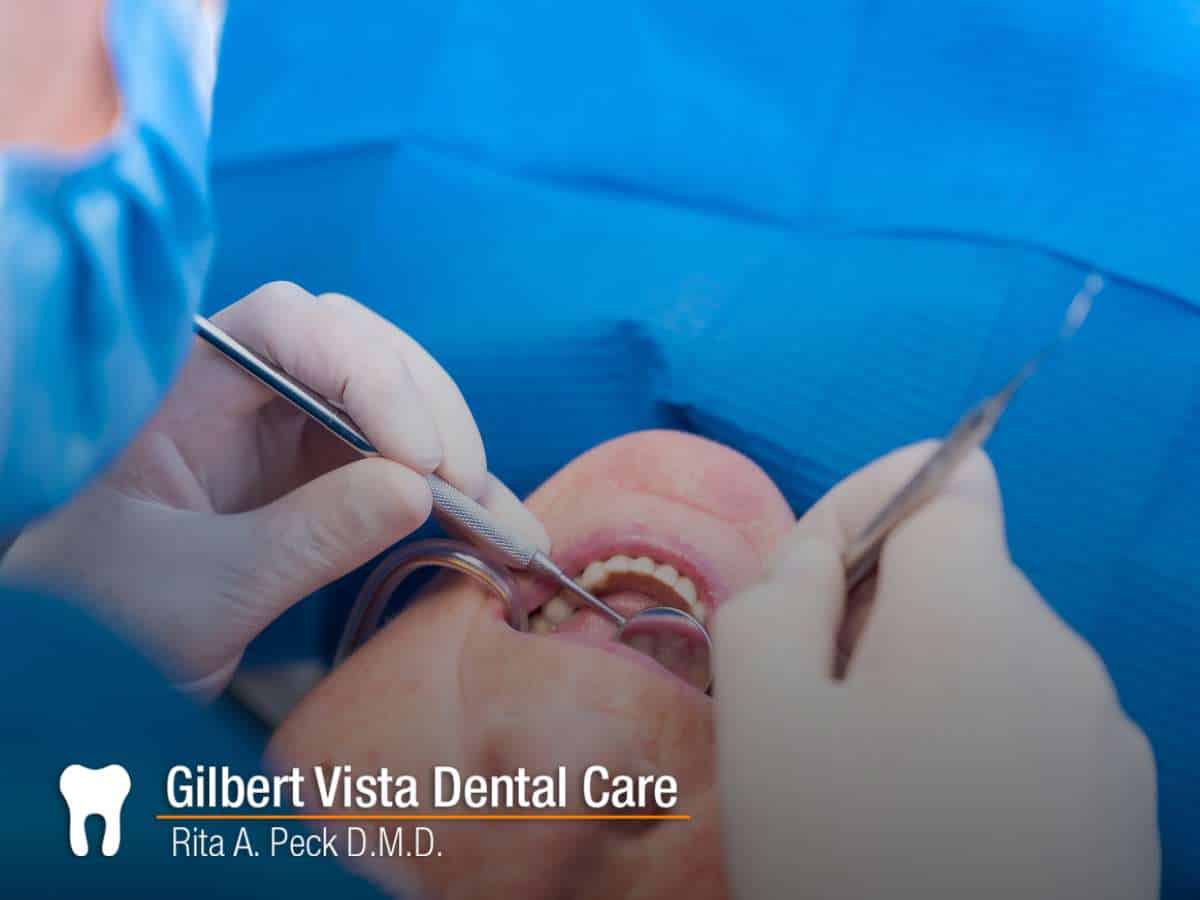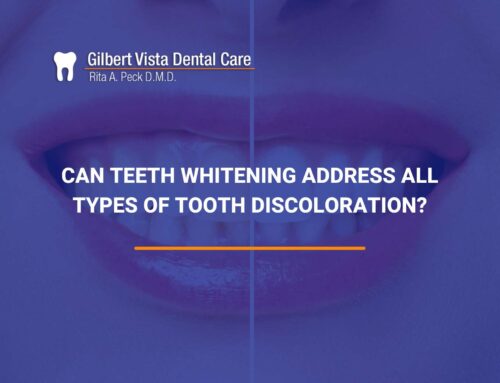How Diabetes Can Increase Your Risk Of Dental Problems: Prevention Tips & Treatment Options
Common Dental Issues Caused By Diabetes & The Importance Of Maintaining Good Oral Health
Diabetes is a chronic condition that can affect many parts of your body, including your mouth. Maintaining good oral health is essential for everyone, but it is particularly important for people with diabetes. Research shows that individuals with diabetes are at an increased risk of developing gum disease, cavities, dry mouth, and other dental issues that can worsen their condition.
Here, we will explore how diabetes affects your oral health and offer prevention tips and treatment options to help you manage these dental risks.
How Does Diabetes Affect Your Oral Health?
Diabetes can impact your mouth in several ways, mainly by affecting your saliva production and glucose levels. Gilbert dental care professionals highlight that proper saliva production is crucial for oral health.
Saliva helps wash away food particles, neutralize acids produced by bacteria, and protect the tissues in your mouth. However, diabetes can reduce the flow of saliva, leading to dry mouth, a condition that makes it more difficult to keep your mouth clean.
When the saliva flow is reduced, harmful bacteria can accumulate more easily, leading to plaque buildup. Plaque is a sticky film of bacteria that forms on your teeth and can cause cavities. If plaque is not removed, it can harden into tartar, which may eventually lead to gum disease. In addition, high blood glucose levels can lead to an increase in glucose levels in your saliva, providing food for bacteria, which exacerbates plaque formation.
Common Dental Problems Caused By Diabetes
Diabetes significantly increases the risk of several dental issues, particularly gum disease. There are two main stages of gum disease that individuals with diabetes should be aware of:
Gingivitis
Gingivitis is the earliest stage of gum disease, where the gums become red, swollen, and may bleed easily, especially when brushing. This condition is caused by plaque buildup near the gum line. If not treated, gingivitis can progress to more severe stages of gum disease.
Periodontitis
If gingivitis is left untreated, it can develop into periodontitis. At this stage, the infection affects not only the gums but also the underlying bone and tissues that support your teeth. The gums may start to recede, creating pockets that become infected, leading to further damage to the bone structure. In advanced cases, teeth may loosen and even fall out.
People with diabetes are particularly vulnerable to the progression of gum disease, as high blood glucose levels can impair the body’s ability to fight infection, making it harder to combat bacteria in the mouth.
Additional Dental Complications Linked To Diabetes
Beyond gum disease, there are several other dental problems that individuals with diabetes may experience:
- Dental Cavities: Increased glucose in the mouth can contribute to tooth decay.
- Dry Mouth: A lack of sufficient saliva can lead to dryness in the mouth, causing discomfort, difficulty swallowing, and an increased risk of infections.
- Thrush: This fungal infection can cause painful, white patches inside the mouth.
- Burning Mouth Syndrome: Uncontrolled blood glucose levels may cause a burning sensation in the mouth.
- Altered Taste: Diabetes can sometimes cause changes in the way food and beverages taste.
These problems can affect your ability to manage your diabetes. For example, tooth loss and gum disease may make it difficult to maintain a healthy diet, which is essential for managing blood sugar levels. Dentists in Gilbert emphasize the importance of regular dental visits to monitor and prevent worsening complications.
Prevention Tips For Maintaining Good Oral Health
Taking care of your teeth and gums is essential for people with diabetes. Here are some practical tips to help prevent dental problems and maintain optimal oral health:
1. Keep Your Blood Glucose Levels In Check
The most important step in preventing dental issues related to diabetes is keeping your blood glucose levels within your target range. Consistent blood sugar management helps reduce the risk of oral infections and gum disease.
2. Brush & Floss Regularly
Brushing your teeth at least twice a day with fluoride toothpaste and flossing daily is essential for preventing plaque buildup. Make sure to brush gently along the gum line to avoid irritation. For people with diabetes, it’s also important to use a toothbrush with soft bristles, or even better an electric toothbrush to reduce the amount of plaque at the gumline.
3. Visit Your Dentist Regularly
Regular dental checkups are critical for preventing and managing oral health problems. We recommend visiting your dentist at least twice a year for professional dental cleaning and exams. Your dentist can spot early signs of gum disease or other dental problems and treat them before they become more serious.
4. Stay Hydrated
Drinking plenty of water throughout the day helps stimulate saliva production, reducing the risk of dry mouth. If you experience dry mouth despite staying hydrated, ask your dentist about products that can help keep your mouth moist and slow bacterial growth.
5. Quit Smoking
Smoking exacerbates many of the complications of diabetes, including oral health issues. Smokers with diabetes are more likely to develop severe gum disease and other dental problems. Quitting smoking can improve both your overall health and your oral health.
6. Talk to Your Dentist About Diabetes
Make sure your dentist knows that you have diabetes, as well as any changes in your blood glucose levels. This information will help your dentist provide the best care possible. If you need any specific advice on oral care products or routines tailored to your condition, don’t hesitate to ask.
Treatment Options For Dental Problems Related To Diabetes
Experiencing dental problems related to diabetes can be addressed with various treatment options to help restore your oral health. For gum disease, treatment may include professional cleanings to remove plaque and tartar, as well as scaling and root planing to treat deeper infections. In more advanced cases, surgical treatments may be needed to restore the gums and bone.
In cases of dry mouth, your dentist may recommend saliva substitutes or oral moisturizers to help alleviate discomfort. Treatments like fillings, crowns, or other restorations can help address tooth decay and restore oral health.
In Summary
Diabetes can significantly increase your risk of dental problems, but with proper care and attention, you can keep your mouth healthy and manage your condition effectively.
Regular visits to a top-rated Gilbert dental clinic, maintaining good oral hygiene, and managing your blood glucose levels are all essential steps in preventing dental issues related to diabetes.
If you’re due for a checkup or have concerns about your oral health, contact us at Gilbert Vista Dental today to schedule an appointment and ensure your smile stays healthy for years to come.
Gilbert Vista Dental Care
2451 East Baseline Road #210
Gilbert, AZ 85234
Phone: (480) 503-5467
Email: [email protected]
Website: https://drritapeck.com/







